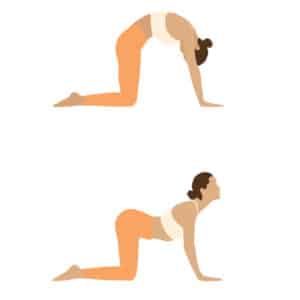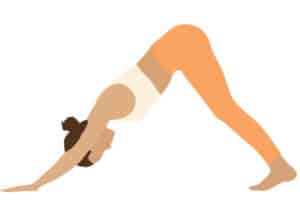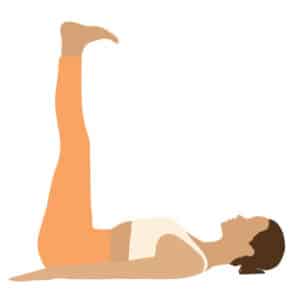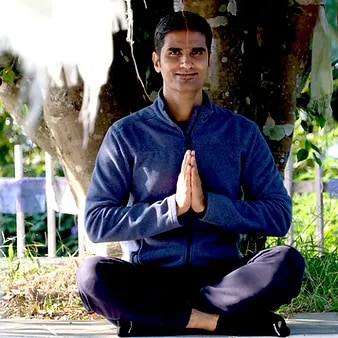Yoga for Digital Detox: Reconnect with Yourself
by Hardik Mehta

In today’s fast-paced world, technology is an inseparable part of our lives. From smartphones to laptops, social media to emails, we are constantly surrounded by screens. While technology has made our lives convenient, it has also led to increased stress, anxiety, and reduced mindfulness. A digital detox is a way to break free from the excessive use of technology and restore balance in our lives. Yoga is one of the most effective tools to achieve this balance by helping to reconnect with our body, mind, and soul.
Understanding Digital Detox
A digital detox refers to a period of time when individuals voluntarily refrain from using digital devices, including smartphones, computers, tablets, and televisions. The goal is to reduce stress, enhance focus, and improve overall well-being. Prolonged screen time can lead to issues such as eye strain, sleep disorders, mental fatigue, and social disconnection. A structured digital detox combined with yoga can help rejuvenate the mind and body.
How Yoga Supports Digital Detox
Yoga is a holistic practice that promotes mindfulness, relaxation, and mental clarity. The combination of physical postures, breath control, and meditation helps to release tension, increase focus, and develop a deeper connection with oneself. Here are some ways yoga can support a successful digital detox:
- Enhances Mindfulness and Presence
Yoga encourages mindfulness by bringing awareness to the present moment. With every breath and movement, you learn to focus on what is happening right now rather than being distracted by digital notifications.
- Reduces Stress and Anxiety
Constant exposure to social media and digital communication can lead to stress and anxiety. Yoga postures and breathing exercises activate the parasympathetic nervous system, promoting relaxation and reducing cortisol levels.
- Improves Sleep Quality
Excessive screen time, especially before bedtime, can disrupt sleep patterns. Yoga and meditation help calm the nervous system, making it easier to fall asleep and stay asleep.
- Encourages Physical Movement
Spending hours in front of screens leads to a sedentary lifestyle, which can cause various health issues. Yoga improves flexibility, posture, and circulation, reducing the risk of lifestyle-related ailments.
- Develops Self-Discipline
A yoga practice instills discipline, which can be applied to reducing screen time. Setting boundaries for technology use becomes easier when one practices yoga regularly.
Best Yoga Practices for Digital Detox
To effectively detox from digital distractions, incorporate the following yoga techniques into your daily routine:
- Pranayama (Breathing Exercises)
Pranayama, or breath control, helps to cleanse the mind and body from digital overstimulation.
- Anulom Vilom (Alternate Nostril Breathing): Balances both hemispheres of the brain, reduces stress, and enhances focus.
- Bhramari (Bee Breath): Calms the mind, relieves anxiety, and improves concentration.
- Deep Belly Breathing: Enhances oxygen flow, reducing tension and fatigue.
- Asanas (Yoga Poses)
These yoga postures help release tension accumulated from prolonged screen exposure.
- Child’s Pose (Balasana): Relaxes the spine and calms the mind.

- Cat-Cow Stretch (Marjaryasana-Bitilasana): Relieves neck and back stiffness caused by excessive screen time.

- Downward-Facing Dog (Adho Mukha Svanasana): Improves blood circulation and reduces stress.

- Seated Forward Bend (Paschimottanasana): Helps in grounding the body and reducing digital cravings.

- Legs-Up-The-Wall Pose (Viparita Karani): Encourages relaxation and better sleep.

- Meditation and Mindfulness
Meditation plays a crucial role in detaching from digital distractions. Practicing mindfulness helps in reducing the urge to check devices frequently.
- Guided Meditation: Listening to a guided session can help in focusing the mind.
- Body Scan Meditation: Encourages relaxation by bringing awareness to different parts of the body.
- Walking Meditation: Helps to connect with nature while being mindful.
- Yoga Nidra (Yogic Sleep)
Yoga Nidra is a powerful relaxation technique that helps in disconnecting from technology and achieving deep rest. It is a guided practice that takes the mind into a state of conscious relaxation, reducing stress and enhancing emotional well-being.
- Digital Detox Routine with Yoga
To maximize the benefits of a digital detox, follow this simple routine:
- Morning: Begin your day with Pranayama and a short yoga session.
- Midday: Take a break from screens with a few stretches and breathing exercises.
- Evening: Practice meditation and gentle yoga before bedtime to unwind.
- Weekend Detox: Set aside one day a week to completely disconnect from digital devices and engage in outdoor yoga sessions.
Additional Tips for a Successful Digital Detox
- Set Boundaries: Establish screen-free zones in your home, such as the bedroom and dining area.
- Use Analog Alternatives: Opt for physical books, journals, and clocks instead of digital versions.
- Engage in Offline Activities: Spend time in nature, practice hobbies, and engage in face-to-face conversations.
- Limit Social Media Use: Schedule specific times for checking social media instead of mindless scrolling.
- Unplug Before Bedtime: Turn off electronic devices at least an hour before sleeping.
The Long-Term Benefits of Yoga for Digital Detox
Regular yoga practice not only helps in reducing screen addiction but also provides long-term benefits, including:
- Improved Mental Clarity: A focused mind free from digital distractions enhances productivity.
- Better Emotional Balance: Yoga helps in managing emotions, leading to a more positive outlook.
- Stronger Relationships: Reduced screen time fosters deeper connections with loved ones.
- Increased Energy Levels: Less digital fatigue leads to more physical vitality.
A digital detox is essential for maintaining mental and physical well-being in today’s technology-driven world. Yoga serves as a powerful tool to break free from digital dependence, cultivate mindfulness, and restore inner peace. By incorporating yoga into your daily routine, you can develop a healthier relationship with technology while enhancing overall well-being. Start your digital detox journey with yoga today and experience the transformation!
By adopting yoga as a means to detox digitally, you can find balance, reduce stress, and reconnect with the world around you. Whether you are a beginner or a seasoned practitioner, the journey towards a mindful, technology-free existence begins with a single breath. Namaste!
About the Author

Hardik Mehta
Hardik is an E-RYT 500 & YACEP (Yoga Alliance Continuing Education Provider), Yoga Alliance, USA. He has been practicing yoga for the last 9 years. Prior to finding his true calling in Yoga, he was working with various corporates for 12 years in the Retail and eCommerce sector.
